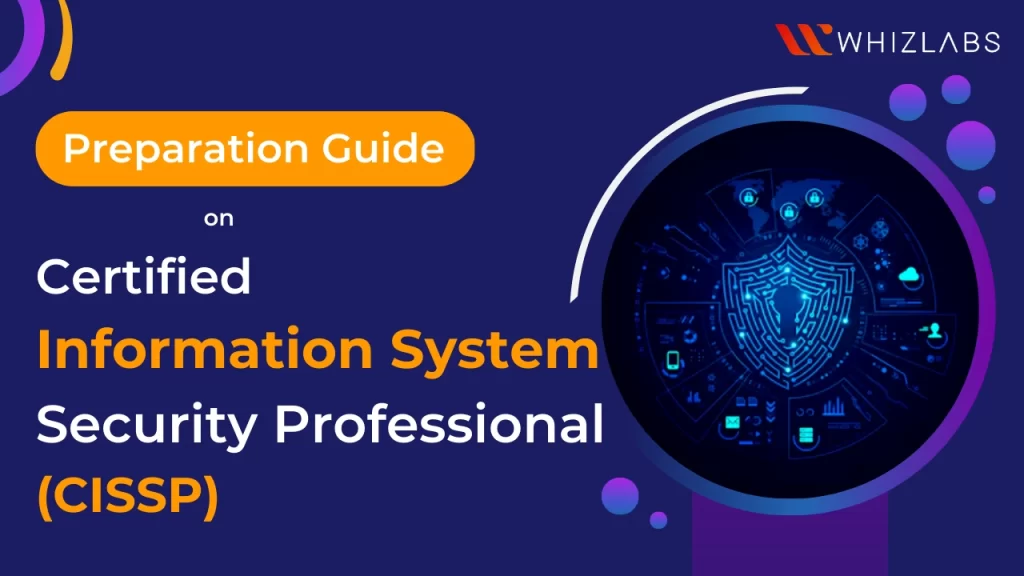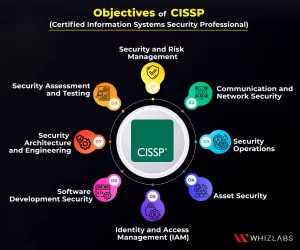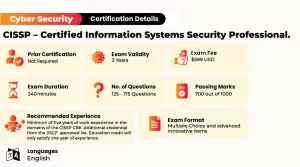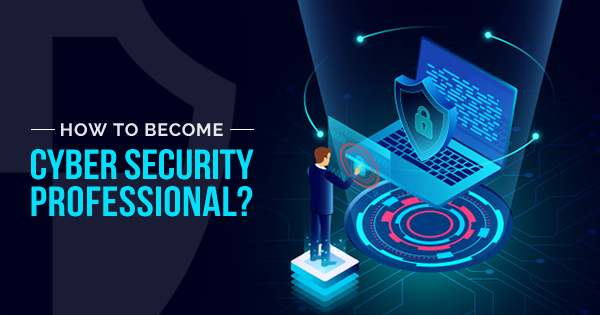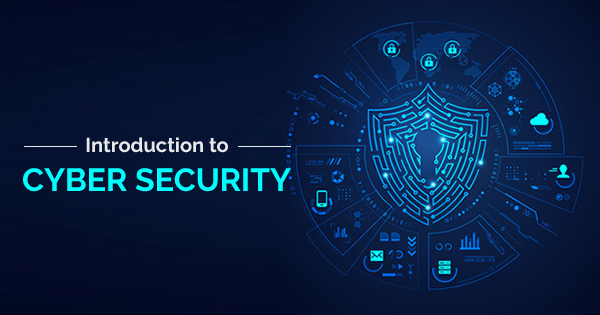Are you planning to begin your career as a Certified Information System Security Professional? If it is yes, then this will be your right guide to get well prepared for the exam.
Taking Certified Information System Security Professional certification can help to attain deep technical and managerial knowledge and experience to effectively design, engineer, and manage the overall security posture of an organization.
In this guide, we’ll cover the key topics that will be covered on the exam, who should take this Certified Information System Security Professional certification, overview of the exam, detailed syllabus, study materials to refer to and will provide some tips on how to study effectively.
Let’s dig in!
All about Certified Information System Security Professional Certification
Certified Information System Security Professional Certification(CISSP) is a Professional level certification exam which helps in enhancing skills and knowledge in designing, building, and maintaining security of business environments by using globally approved security standards.
As per the report of Cybersecurity Ventures, it has been found that the global cyber security market is expected to attain USD $282.3 Billion in the year 2024 with a growing rate of 11.1 percent annually. And thus getting this kind of cybersecurity certification can open doors to more job opportunities.
As a Certified Information Security Professional, the roles and responsibilities such as identifying and investigating security needs of the clients and recommending the best solutions. It can be achieved by:
- Identification of organizations needs in terms of security
- Planning methods in which security measures can be implemented
- Explanation of the issues to the stakeholders
- Proposal and recommendation of the best possible solutions available
And also you can also work with the following fields such as network architecture, cyber security management, recovery policies management.
Also read on: How to Become a Cyber Security Professional?
What are the skills you will gain from the Certified Information System Security Professional Certification?
The CISSP designation is a globally recognized and vendor-neutral standard designed mainly for IT security professionals to enhance the technical skills and hands-on experience in implementing and managing a security program. And also they can gain skills in the following areas:
Security and Risk Management : It may cover the following topics such as Security control principles, IT policies and methods, Estimation of observance requirements,Building a scope, proposal, and strategy for enterprise continuity requirements, Risk-centered concepts, Compliance requirements, Notions of threat modeling and its methods.
Asset security : it may cover the following topics such as Managing requirements, Data security limitations, Safeguarding privacy, Retention of asset, Categorization and possession of the data.
Security Architecture and Engineering : You can upskill you skills in security architecture and engineering concepts such as Ideas and techniques for security skills of data systems, Cryptography, Capability to lessen weaknesses exist in security architects, plans,web-based applications, mobile applications, and entrenched systems and important concepts of security prototypes.
Communications and Network Security: You can enhance your skills in Securing network parts, Securing communication channels, Applying and securing layout values in network design.
Identity and Access Management: You will learn about the following topics such as Logical and physical access to information, Detection and validation, Assimilation of uniqueness as a provision and third-party identity services and Approval mechanisms.
Security Assessment and Testing: You will learn about the following topics such as Vulnerability assessment and penetration testing, Disaster recovery, Business continuity plans and Awareness training provided for clients
Security Operations : You can gain knowledge on security inspections, Accumulation of secure information, Business endurance, Securing the provision of assets, Logging and examining events
Software Development Security: You can get into following concepts such as Examination of hazard evaluation and Detection of weaknesses in source codes.
Who should take the Certified Information System Security Professional Certification?
The CISSP exam is ideal for experienced security practitioners, managers and executives who are interested in proving their knowledge and skills across a wide range of security practices and principles. And also it is best suit for those at intermediate level of their career such as:
- Security consultants/managers
- IT directors/managers
- Security analyst
- Security auditors/architects
- Security system engineers
- CIOs
- Network architects
Why to take the Certified Information System Security Professional Certification?
The CISSP certification was found to be the gold standard certification for IT and cybersecurity professionals. And thus following are some of the benefits by taking CISSP certification:
Build cybersecurity expertise
The candidate who has passed the Certified Information System Security Professional Certification can have in-depth knowledge about critical cybersecurity topics. They possess the skills and knowledge to defend the various cybersecurity challenges in day-to-day life. And also they are familiar with the current information security trends.
Become a more competitive candidate
Getting CISSP certification can add value to your cybersecurity resume and you can be able to signify to the recruiters and employers that you are among the top candidates in the information security industry. It also assures that you have at least four or five years of hands-on experience.
As per the (ISC)’s 2021 workforce study, most of the cybersecurity professionals report that their organizations require them to hold CISSP certification.
Increased demand
CISSP Professionals are in high demand across IT industries due to their advanced skills and knowledge to defend against the data breaches and enhanced security measures.
According to CyberSeek, CISSP certifications were found as highly demanding certification among all current cybersecurity job openings. As of October 2022, more than 137,000 cybersecurity job listings request for CISSP certification.
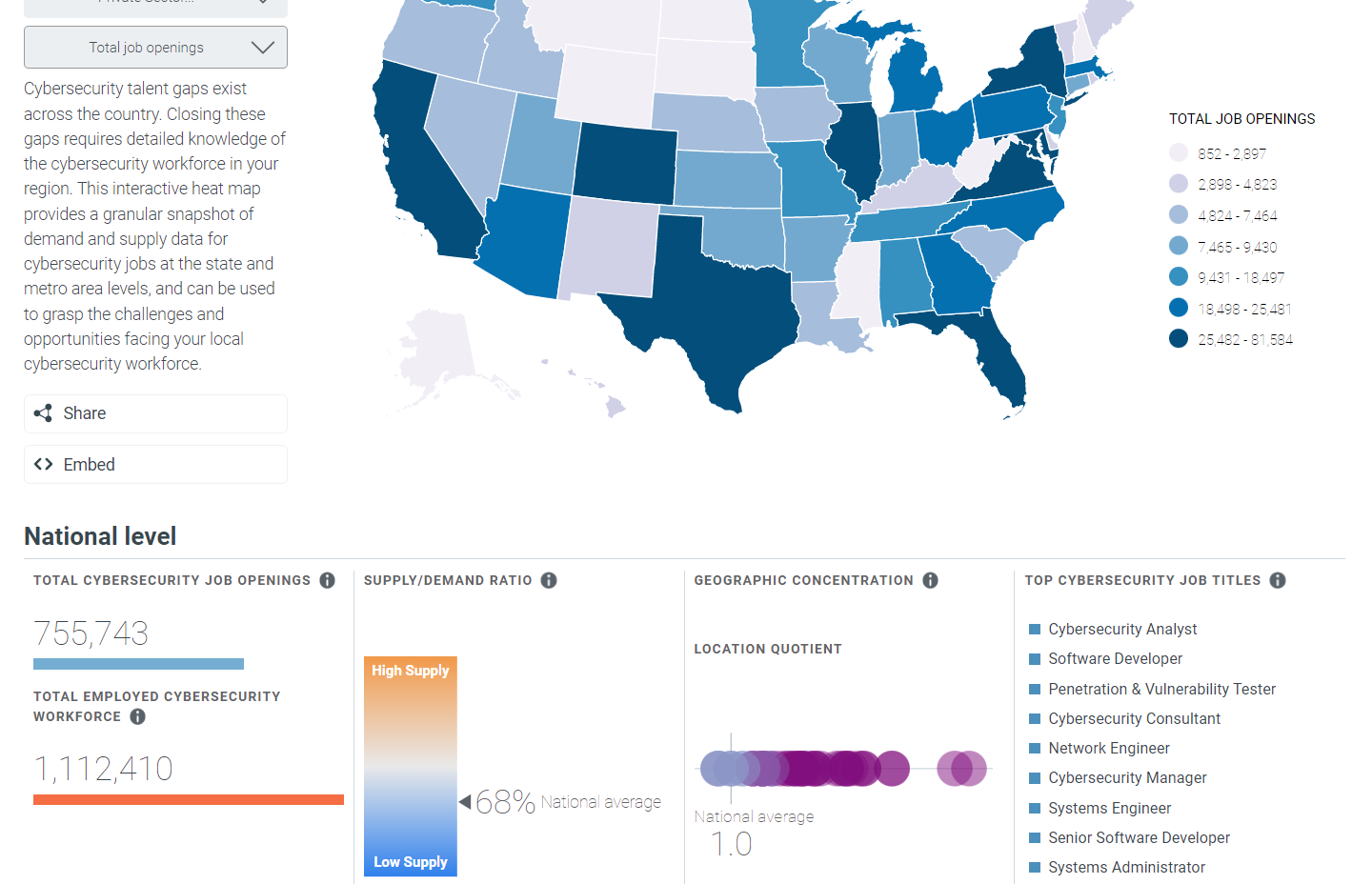
What will you learn from the Certified Information System Security Professional Certification exam?
The CISSP can help to attain the skills and knowledge that are necessary to plan and manage information systems security posture for an organization.
It covers a wide range of organizational topics and IT/IS domains, including risk management, security architecture, development security, and much more. It also covers broad managerial subjects and deep technical expertise.
Prerequisites of Certified Information System Security Professional Certification exam
Candidates who wish to appear for the Certified Information Systems Security Professional (CISSP) exam needs to comply with the following requirements:
- Must have a minimum of 5 years cumulative paid work experience in two or more of CISSP CBK eight domains
- Getting a four-year college degree or regional equivalent or an extra credential from the (ISC)² approved list can fulfill one year of required experience
The candidate who does not have the required experience to become a CISSP can become an Associate of (ISC)² by passing the CISSP examination. The Associate of (ISC)² will then have six years to earn the five years of expected experience.
Exam Format for Certified Information System Security Professional Certification exam
Exam Domain for Certified Information System Security Professional Certification exam
The Certified Information System Security Professional Certification exam composed of eight domains and they are listed below:
| Domains | Weightage |
| Security and Risk Management | 10% |
| Asset security | 13% |
| Security Architecture and Engineering | 13% |
| Communications and Network Security | 13% |
| Identity and Access Management | 12% |
| Security Assessment and Testing | 13% |
| Security Operations | 13% |
| Software Development Security | 11% |
Security and Risk Management
- Concepts of integrity, confidentiality, and availability
- Applying security governance principles
- Evaluation of compliance requirements
- Integration of professional ethics
- Legal and regulatory issues relevant to information security on a global perspective
- Develop scope, plan, and impact for business continuity requirements
- Establishing personnel security policies and procedures
- Understand and applying fundamentals of risk managements
- Concepts of threat modeling and methodologies
- Building risk-based management concepts in the supply chain
- Conduct security awareness, training, and educational programs
Asset Security
- Identification, classification, and ownership of information and assets
- Protecting privacy
- Assets retention
- Establishing data security controls
- Handling
Security Architecture and Engineering
- Engineering implementations using secure design principles
- Fundamental concepts used in security models
- Concepts for security capabilities of information systems
- Cryptography
- Asset and mitigate vulnerabilities in security architects, designs, mobile systems, web-based systems, and embedded system
- Applying and implementing security principles and controls to site
Communications and Network Security
- Implementing and securing design principles in network architecture
- Establishing secure network components
- Securing communication channels as per design
Identity and Access Management
- Controlling physical and logical access to the assets
- Controlling and manage authentication and identification of devices, people, and services
- Understanding and integrating identity as a third-party service
- Implementing Authorization mechanism
- Identity and access lifecycle
Security Assessment and Testing
- Building internal, external and third-party audit strategies
- Assessing security control testing
- Collecting secure data
- Analyzing test outputs and generating a report
- Facilitating security audits
Security Operations
- Understanding Investigations (Techniques, collection, handling, and digital forensic tools)
- International requirements for investigation types
- Establishing logging and monitoring activities
- Assets inventory, configurations, and management
- Concepts for foundational security operations
- Understanding resource protection techniques
- Incident management
- Implementing and Testing disaster recovery plans
- Process and testing for Disaster Recovery (DR)
- Evaluating physical security
- Business Continuity planning and exercises
- Managing physical security
- Managing personnel security and safety
Software Development Security
- Understand and implement security throughout the Software Development Life Cycle (SDLC)
- Executing security controls in development environments
- Effectiveness of software security (Auditing, logging, risk analysis, and mitigation)
- Evaluation of security impact
- Setting and applying secure coding standards and guidelines
Study materials to refer for Certified Information System Security Professional Certification exam
If you are just starting your CISSP certification journey, then you may have to refer to the official CISSP Common Body of Knowledge (CBK) guide and try to get familiar with the concepts and domains of Certified Information System Security Professional Certification exam.
Then you can take instructor-led videos training course on Certified Information System Security Professional Certification and it provides a comprehensive review of IT security concepts and industry best practices, covering the eight domains of the CISSP.
In addition, some of the study materials to refer such as:
- CISSP Flashcard: CISSP Flashcards offered by (ISC)² helps candidates to get immediate feedback relating to their queries. Also it provides the ability to flag individual cards for a separate study. It has been sectioned for each domain to make learning easier and efficient.
- Practice tests: They are considered as one of the most efficient sources to study for the exam as they offer live exam experience. Therefore, try as many practice tests as you can.
- Dome books: Here are some of the best CISSP books you must have handy such as:
- CISSP for Dummies by Lawrence C. Miller
- Eleventh Hour CISSP®: 3rd Edition by Eric Conrad, Seth Misenar and Joshua Feldman
Get in touch with a vibrant and supportive CISSP online community and you may find answers to queries and also you will be able to interact with certified professionals.
Preparation tips for Certified Information System Security Professional Certification exam
Here are some pro tips to ace the challenges in clearing the Certified Information System Security Professional Certification exam and they are:
- Avoid diving straight into the exam domains. Visit the CISSP website first, then familiarize yourself with the exam objective. Then just be familiar with the layout of the syllabus.
- You need to be aware of the exam prerequisites at this point. For the CISSP, a lot of job experience is necessary.
- Create a schedule after completing the exam domain preparation. Don’t forget to include any chapters or subtopics. You can always consult the CISSP Common Body of Knowledge (CBK) study materials, online courses, videos, and tutorials on YouTube for greater clarity.
- Take a break halfway through the planning process to assess your progress. Now compare it to the knowledge and ideas listed in the prerequisites.
- When you feel sure about your preparation, take practice exams and sample papers. Do a self-evaluation, review your deficiencies and mistakes, and then try again.
Once you are satisfied with the scores on the practice test, apply for the real exam and add a feather to your cap.
FAQs
Q: Who is eligible for CISSP?
A: You need to have at least 5 years cumulative paid full-time work experience in at least two domains of the CISSP Common Book of Knowledge. Getting a 4-year college education degree or a regional equivalent of a cissp credential from the (ISC)2 approved list. This helps you to satisfy 1 year of the required experience.
Q: Is CISSP very difficult?
A: Though the pass rates for the CISSP are not publicly released, it is assumed that pass rates were found to be below 50%. The CISSP exam covers eight diverse domains and thus it is harder to pass the CISSP exam.
Q: Is CISSP for beginners?
A: You can take the CISSP exam without having any experience and then you’ll have 6 years to complete your 5 years of industry experience. After that, you can officially submit your endorsement to become an official CISSP.
Q: Can I pass the CISSP in 3 months?
A: Yes, If you wish to complete the CISSP exam in 3 months, you can go for a Longer Method such as 3 months or more, 2 hours per day, with a focus mainly on weekends. Try not to skip anything while preparing for the exam.
Q: What is the entry level salary for CISSP?
A: As per Indeed, for the entry level CISSP candidate, the average salary will be $99,000 per year. And it has been found that CISSP-certified IT professionals have the third highest global salary.
Q: Does CISSP require coding knowledge?
A: Coding knowledge is not needed for you to pass the CISSP exam.
Summary
Hope this blog helps in acquiring necessary skills and best practices to effectively create and execute enterprise-wide information security strategies and pass your Certified Information System Security Professional Certification exam with flying colors the first time you take it.
But passing this certification is not easy and you must be well-prepared to pass the CISSP exam. To achieve this, you have to pick the right study materials.
We at Whizlabs provides you updated and reliable study materials such as unique CISSP practice questions with video lectures curated by the subject matter experts to get familiar with concepts of Certified Information System Security Professional exam.
If you have any queries related to the CISSP certification, please feel free to comment us!
- How to make highly available websites with the usage of AWS Global Infrastructure? - May 18, 2023
- Top Cybersecurity Certifications for Beginners - May 8, 2023
- How to prepare for MS-700: Managing Microsoft Teams? - April 5, 2023
- Examining the future of cybersecurity and importance of SC-100 certification - March 27, 2023
- Preparation Guide on Certified Information System Security Professional(CISSP) Exam - February 17, 2023
- Preparation Guide on SC-900: Microsoft Security, Compliance, and Identity Fundamentals Exam - February 6, 2023
- What is Devsecops? - January 30, 2023
- Preparation Guide on CompTIA A+ 220-1102 (Core 2) - January 27, 2023
